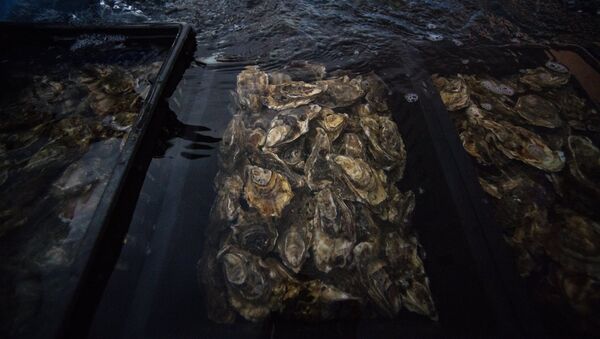Half a million mussels cooked to death have washed up on a beach in New Zealand. A video posted by local resident Brandon Ferguson on Facebook shows scores of dead mollusks on Maunganui Bluff beach on the Northern Island. Ferguson said he stumbled upon the incident last week when he was fishing with family and friends.
"We waited for the tide to turn so we could gather mussels. It smelled like dead rotting seafood. Some of the mussels were empty, some of them were dead. Some were just floating around in the tide. There were well over 500,000 mussels and shells littering the coastline", Ferguson told Business Insider.
He said that he has witnessed similar incidents in the past, which he blames on rising water temperature stressing that he shared the video hoping that the international community would pay attention to the effects of climate change. He was echoed by marine scientist Andrew Jeffs, who said that the mussels likely died from heat stress, which resulted from hot temperatures and mid-day low tides.
"The mussels die of heat stress. You imagine lying in the midday sun every day for four hours for the best part of a week. You'd be pretty sunburnt at the end of that", the scientist told The New Zeland Herald making a prediction that mollusks may disappear in New Zealand as temperatures continue to rise.
In December of 2019, it was reported that temperatures in a 400,000 square-mile section of the Pacific Ocean, east of New Zealand rose about 10 degrees Fahrenheit (5.5 degrees Celsius) threatening fish and coral in the region.
Last year, New Zealand’s government produced a report, detailing how climate change affects the country’s oceans and ecosystems. "New Zealand’s oceans act like a giant sponge against the effects of climate change. The warmer the water gets, the less able it is to absorb gases like carbon dioxide. The growth of species in the oceans is affected, and coastal communities and habitats are at risk from flooding and sea-level rise", the report said.


